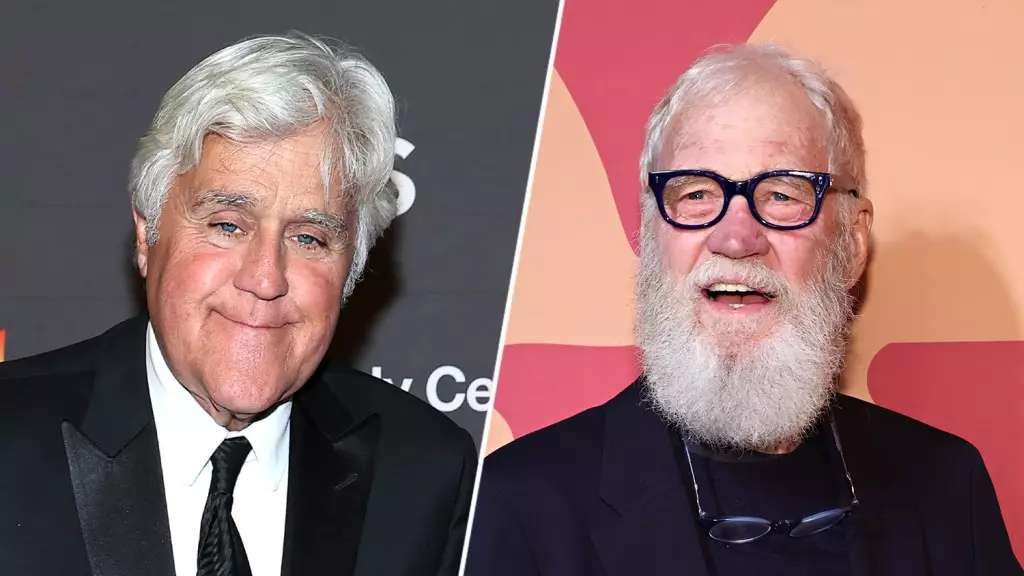Over three decades have passed since Jay Leno and David Letterman first carved out their respective paths in the late-night television landscape, marked by rivalry and camaraderie. Recently, Leno has expressed a surprising willingness to mend bridges, suggesting that he would entertain the idea of a reunion with Letterman. This change of heart is reflective of larger shifts in the entertainment industry, where nostalgia plays a pivotal role in captivating audiences. Leno’s openness hints at a yearning for partnership over rivalry, a significant development considering the years of tension that have colored their relationship.
A Complex Relationship
The history between these two comedy titans is not without its share of complexities. Leno, who famously took over “The Tonight Show” from Johnny Carson in 1992, did so at the expense of Letterman, who felt sidelined despite being a front-runner for the role. This moment encapsulated a fierce yet enigmatic relationship—a rivalry rooted in professional ambition mixed with personal quirks. Leno’s acknowledgment of their shared awkwardness serves as an intriguing lens through which to view their interactions. It’s a reminder that behind the glitzy veneer of late-night television are two human beings navigating their vulnerabilities and idiosyncrasies.
The Role of Quirkiness in Comedy
In his candid remarks, Leno describes Letterman as a “quirky guy,” and emphasizes that such traits are not inherently negative. This perspective invites deeper consideration of what makes comedians resonate with audiences. Quirkiness often catalyzes authentic humor, setting the stage for organic interactions— albeit sometimes bringing awkwardness into the mix. Leno’s admission that he too is quirky, albeit differently, speaks to the heart of their comedic exchange; they inhabit opposing sides of the same humorous coin. Comedy thrives on the unexpected, and Leno’s openness to revisiting past encounters suggests that laughter can indeed bridge divides.
Reflecting on Awkward Moments
The story Leno shares about the surprise visit to Letterman’s Malibu home encapsulates this theme of awkwardness. What might have initially felt like a fun spontaneity ended up being a surreal encounter filled with stilted conversation. This anecdote serves as a reminder that not all comedic moments strike gold; some can be painfully awkward yet fundamentally relatable. The juxtaposition of their diverse interests—Leno dismissing sports while Letterman embraces it—adds another layer to their historical narratives. These differences not only exemplify their comedic personas but also highlight how shared professions can sometimes lack personal connection.
The Future of Late-Night Comedy
While it remains uncertain whether a reconciliation will lead to a televised reunion, the implication of such a possibility resonates deeply within the context of contemporary late-night programming. As familiar faces transition into new roles and fresh talent emerges, fans often find solace in the nostalgia of past partnerships. Leno’s readiness to step into the realm of reunion suggests that audiences may find joy in witnessing the evolution of their dynamics—a blend of history, humor, and heartfelt engagement.
In a world increasingly driven by digital content and fleeting trends, the readiness of such icons to revisit their past could breathe new life into both their legacies and the landscape of late-night television itself. It’s a testament that even in a career steeped in competition, the spirit of collaboration still has room to flourish.

